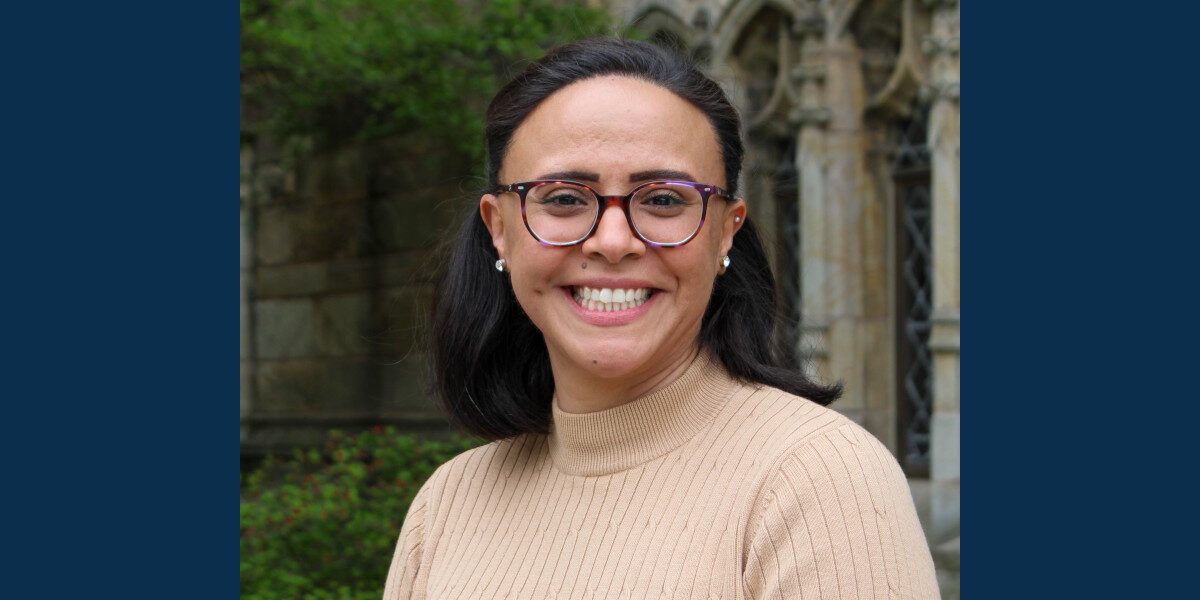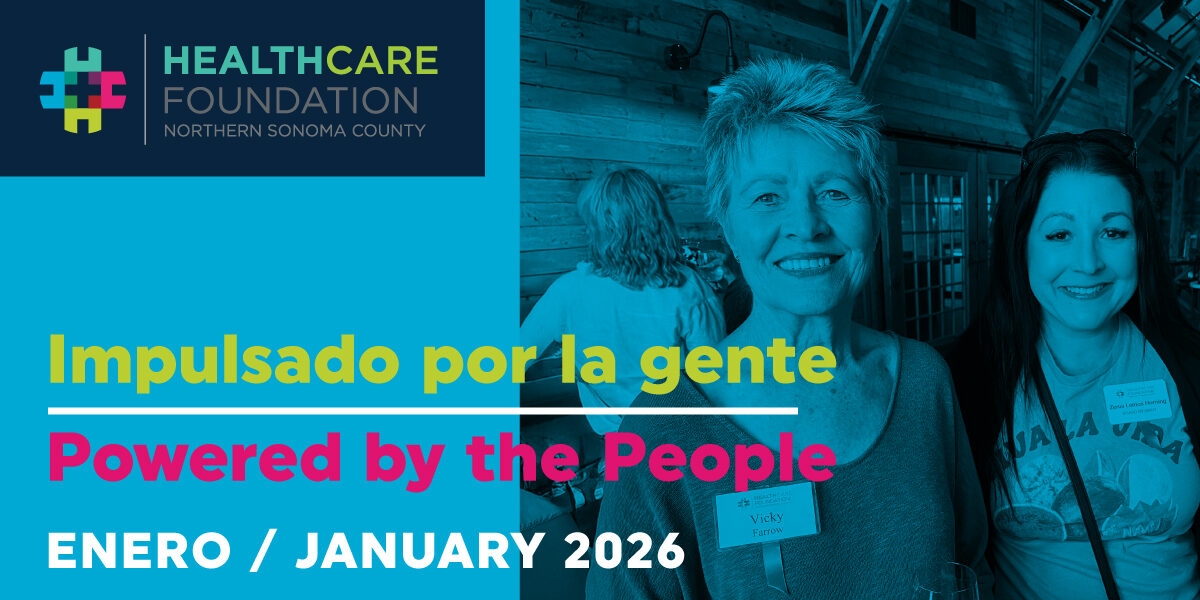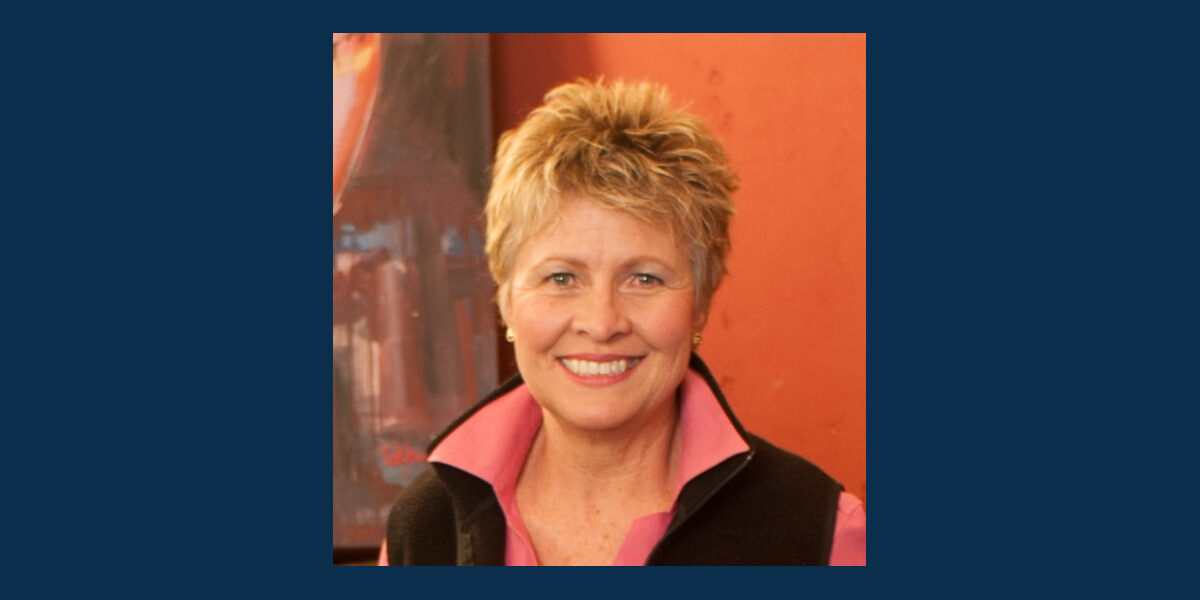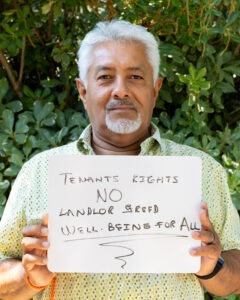

Introducing New Board member Rosa Gonzalez
5 min read. We're pleased to welcome Rosa Gonzalez, Executive Director of Farm to Pantry, to the Healthcare Foundation board.
Rosa Gonzalez, MPH, joined the Healthcare Foundation’s Board of Directors in January, bringing a wealth of personal experience and professional insight into the region’s health and social service landscape. A first-generation daughter of immigrants from Mexico, Rosa was raised in Healdsburg and Windsor, where she witnessed the barriers low-income, Spanish-speaking families face in accessing care.
Those early experiences ignited her passion for health equity and set her on a path of advocacy and leadership—from translating for her family as a child, to earning a Master of Public Health from Yale, to returning home to Sonoma County with a commitment to serve her community.
“I’m from Sonoma County and I love Sonoma County,” says Rosa. “I always knew I would end up back here.”
Having previously served on the boards of Farm to Pantry, Latino Health Forum, and Alliance Medical Center, Rosa became the executive director of Farm to Pantry in 2024.
A dedicated public health professional and active collaborator across the nonprofit sector, Rosa brings to the Healthcare Foundation an invaluable on-the-ground perspective on the systems of care that serve north county. In the conversation that follows, she reflects on her journey into public health, her return home, and the collaborative spirit she sees growing among local organizations—particularly those led by women of color—working to build a healthier, more equitable northern Sonoma County community.
What sparked your interest in public health?
I was born in Mexico and raised there until I was seven, when my family moved to Healdsburg, and later to Windsor. I moved to the States not knowing a single word of English. I saw how much the language really was a barrier to my family—even when going to the doctor. When we first moved here, we didn’t know where to go for healthcare. Thankfully, one of our neighbors worked for Alliance Medical Center. She really became our healthcare navigator. I saw how important it was to have someone who spoke Spanish in that setting. Eventually, I became my family’s translator. I’m the oldest of three, so that fell on me. I became an advocate for my family at a young age. That’s really what started everything for me.
By high school I had learned how the Latino community is predisposed to so many major diseases, whether it’s high blood pressure or heart disease, cholesterol, diabetes, the list goes on. That motivated me to go into the healthcare field. Initially, I wanted to go to med school and become a provider. All that changed when I went to college. In my second to last year at UC Davis, I volunteered for a public health program and started learning how you could make a positive impact in your community, before people got sick, through preventative education. Helping people make healthier choices, even small adjustments (for example, taking a 20 minute walk every day), was shown to reduce ill health and improve health outcomes. In my senior year, I applied to a work-study position in this program. That just opened up my world. I realized, I can go into the public health field and benefit my community at a systemic level.
How did your path through public health lead you to Farm to Pantry?
After I finished grad school in 2023, I was trying to figure out what job I wanted. I moved back home from the East Coast in August and bought a one-way ticket to Mexico to reconnect with family, especially my grandfather. I started applying to jobs with the County of Marin and City of Santa Rosa. When I learned second-round interviews would be in person, I bought a ticket back for December. Just before flying, I got emails from both employers saying they’d chosen other candidates. I couldn’t throw away the ticket, so I flew back, but I only told a handful of friends I was home—I’d been disconnected from Sonoma County for three years and wanted a month to settle in and see what was happening in the community. One colleague and friend I told had joined the Farm to Pantry board after I left for grad school. I’d served on that board for six and a half years. I had recruited her to join the board and she was now Co-Chair. Soon, I started getting calls letting me know that Duskie Estes, then executive director, was stepping down and wanted me to consider stepping into the role. After some conversations, I agreed to serve as interim starting in February. I went through the interview process and was named executive director in July. It’s truly been great. The team has been amazing.
“I love seeing the collaboration that’s happening between nonprofits. . . specifically with the leaders of color, who also happen to be women of color . . . We really are all about collaboration and helping each other out.”
Rosa Gonzalez
Has it been different coming back after grad school?
I’ve definitely grown. I finished undergrad in 2013, and I started grad school in 2021. I’m a first-gen student. My dad’s a farmworker; my mom works at a factory here in town. I was going to have to figure out grad school on my own. But having those years of work experience really helped me to bring in a unique perspective, because all we talked about was theory. Very few things were centered in practice. Being able to bring in my personal experience was very valuable. I was able to connect the dots in a meaningful, real-world way.
How does Farm to Pantry fit into a public health framework?
It falls into what we call the social determinants of health—the things that go into making a healthy, well-taken-care-of human being. That includes, for example, having a living wage, having housing, having access to nutritious food, mental and physical health, or where you live, your zip code—all of these social determinants affect your wellbeing. With Farm to Pantry, we’re making sure that the underserved communities of Sonoma County have access to healthy food. Moreover, this is food that otherwise would go to waste or end up in the compost. The families we serve are already struggling to make ends meet because they don’t have a living wage. We have many families in our state that have to make a decision between paying rent and putting food on the table. If Farm to Pantry can help relieve some of that pressure, then we’re going to do that. The abundance is there. Our work is in making sure that we as members of Sonoma County have a way of supporting the health and wellbeing of our neighbors.
How did you become aware of, and eventually join the Healthcare Foundation?
I believe I first learned about the Healthcare Foundation when I was on the board of Alliance Medical Center. Later, I was recruited by [former Healthcare Foundation Board Chair] Wanda Tapia-Thomsen. I met Wanda when we were both working for the Latino Health Forum. Right before I left for Mexico, Wanda reached out and wanted to have coffee. She was very upfront about talking with me about joining the Healthcare Foundation. I told her I would contact her again when I came back, so she was one of the folks I told when I returned to town. We met and she told me about what the Healthcare Foundation was doing, the projects they were working on. Once I said yes, she connected me to Kathi [Safford, head of the Board’s Nominations Committee], and that got the ball rolling.
What most motivates you in your role on the Board?
It’s been great being on the Board. Having been involved with so many of the nonprofits the Healthcare Foundation supports and partners with, and knowing many of the individuals and the work that they’re doing, gives me a unique perspective. I know how much work it takes to run a program, all the details on the backend that go into making it succeed. I bring that perspective to the process of evaluating requests and seeing that funds get directed in the most efficient, impactful way. At Farm to Pantry, meanwhile, I’ve been making more connections, talking with executive directors at other organizations, especially those that offer direct services like Nuestra Comunidad, Corazón Healdsburg or La Familia Sana, about the programs they’re running and the kinds of issues that they’re running into. I join the entire Healthcare Foundation Board in working to make sure that they feel supported in the critical work they’re doing.
Are there a lot of conversations geared to understanding the landscape?
There definitely are. The Board always wants to hear about the work and partnerships happening among the region’s nonprofits, what the current landscape is, if there’s a gap somewhere and how we can help make sure it is addressed.
What about this region gives you the most hope or encouragement?
I love seeing the collaboration that’s happening between nonprofits. In the past, it has not been like that, it’s felt very competitive. I see that shifting to a realization that this is not a competition, that we should be collaborating. And not reinventing the wheel. There are many nonprofits here; someone is likely to be already doing the work that you want to do. What excites me about being on the Board is making those connections and collaborations even stronger—and that’s just what I’m seeing, specifically with the leaders of color, who also happen to be women of color, in these executive director positions. We really are all about collaboration and helping each other out.

Related News + Stories
Invest in Our Community
Your support is vital to our collective vision of eliminating health inequities in northern Sonoma County.
Donate



